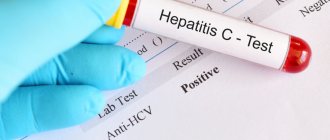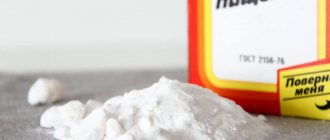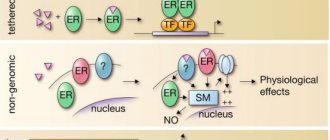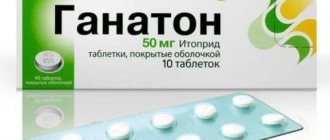Initial appointment with a THERAPIST with 25 years of experience
ONLY 1800 rubles!
(more about prices below)
Immunoglobulin (IG, Ig antibodies) is a type of glycoprotein substance that is found on the outside of B lymphocytes, in tissues and blood, representing water-soluble molecules. Immunoglobulin has a distinctive feature - it can choose which particles it combines with. Those molecules with which this substance binds are called antigens. Immunoglobulin is the most important factor of immunity. The human body uses these antibodies as a tool to identify and neutralize foreign substances, viruses, infections, and bacteria. In addition to the binding function, it also plays an effector role, that is, it causes a certain response of the immune system, launching a complementary scheme of interaction with a foreign substance. Immunoglobulins are synthesized in plasma cells in response to the appearance of an antigen, and for each of the antigens certain plasma cells appear that correspond only to it and are produced by the body specifically for it.
Get tested
If you are in doubt about the choice of laboratory testing, make an appointment with a therapist or consult by phone
+7
Immunoglobulin classes
Classes of immunoglobulins are characteristic not only of humans, but also of all mammals. These antibodies were first discovered by scientists Kitazato and Bering at the end of the 19th century, but the level of development of scientific knowledge at that time did not allow the use of the acquired knowledge. Serious study of the molecular nature of immunoglobulins began only in the forties of the 20th century. To date, the following types of immunoglobulin have been identified:
- Immunoglobulin G (IgG);
- Immunoglobulin M (IgM);
- Immunoglobulin E (IgE);
- Immunoglobulin A (IgA);
- Immunoglobulin D (IgD).
Each type (isotype) of immunoglobulins is conventionally divided into several subtypes; There are nine species and subspecies in total, and in this quantity they are present in all mammals.
Features of tests for coronavirus in a clinic based on the presence and dynamics of IgG, IgM, IgA antibodies
The presented tests can be taken in different ways. In general, 2 forms of testing are used:
- Instrument-free immunochromatographic rapid test.
- Classic enzyme-linked immunosorbent assay.
The main testing reagent is a recombinant structural protein called S1 domain. Thanks to it, it is possible to identify the classes and characteristics of proteins produced by the immune system in response to infection of the body: IgG, IgA, IgM. Note that quantitative protein standards have not yet been developed, but the presence of antibodies is well determined using the tests described above.
Thus, a rapid test will reveal a positive reaction: to understand whether specific proteins of the required class are present in the body.
The main biological material that should be donated for diagnostics is blood. It can be provided in the following varieties:
- deoxygenated blood;
- plasma;
- serum;
- capillary blood.
The minimum time for studying samples is 10-15 minutes if we are talking about the rapid test format. If it is necessary to study the data using ELISA analysis, it will take about 2 hours.
Diagnostics is carried out in standard laboratory conditions; it does not require special equipment, skills or uniforms for medical personnel, except for personal protective equipment. In addition, such tests are much cheaper than PCR.
Immunoglobulin test price
| Service | Price according to Price |
| Immunoglobulin G (IgG) | 400 rub. |
| Immunoglobulin M (IgM) | 400 rub. |
| Immunoglobulin A (IgA) | 400 rub. |
| Immunoglobulin e (Ige) | 500 rub. |
| Immunoelectrophoresis-screening (differentiation of gammopathy: lambda chains, kapa chains of immunoglobulins) | 2200 rub. |
| Immunoelectrophoresis (complex study) with quantitative determination: includes differentiation of gammopathy: lambda chains, kappa chains of immunoglobulins electrophoretically (immunofixation) + quantitative determination Immunoglobulins IgG, IgM, IgA | 46800 rub. |
What is important to know about registering for tests
Do I need to make an appointment: It is better to make an appointment for blood tests and smears to avoid waiting in the treatment room.
Opening hours of the treatment room: Mon - Fri from 8:00 to 12:00
Form of payment: cash, credit cards
Doctor's referral: not required
Minimum patient age: Urinalysis, stool test - any age, blood test - from 10 years
How quickly the results are ready: Average time 1-2 business days. Ready results can be received by email or during a second visit to the clinic
In what cases is a paid IgG test for Covid-19 carried out?
Testing is indicated in the following situations:
- Identification of the acute stage. Immunologists and therapists recommend testing IgA, IgG and IgM antibodies separately. It is also necessary to monitor the detection of proteins over time. If the results remain unclear, the test is repeated after a week.
- If it is necessary to divide patients into categories: those who have already been ill and those who are experiencing the acute phase of the disease.
- If necessary to rule out infection. In this case, rapid testing or point-of-care screening is indicated.
- If hidden carriers of coronavirus infection are identified, with an asymptomatic course.
- If an epidemiological investigation is carried out, it is necessary to identify patients who have had the infection.
- If you need to identify plasma donors that would help in the treatment of patients in the acute phase.
Also, a rapid test for COVID is important for categories of people who find themselves in the following circumstances:
- returns from countries with high levels of virus incidence;
- return from regions with high infection rates;
- potential infection through contact with carriers or people with a confirmed diagnosis;
- presence of ARVI symptoms;
- suspected pneumonia;
- increased body temperature;
- suspicion of previous infection.
Where can I get a blood test for immunoglobulin inexpensively and quickly?
Today, many medical institutions in St. Petersburg invite you to take an immunoglobulin test, but not every clinic can boast of the efficiency of conducting the study. If you need a high-quality immunoglobulin examination in a short time, contact the RIORIT medical clinic. A modern diagnostic laboratory is at your service, as well as qualified doctors who will provide comprehensive advice on issues that interest you. You can find out more about prices for immunoglobulin testing, find out about discounts and make an appointment in the treatment room for testing by phone. or at the address of our clinic: St. Petersburg, Kalininsky district, st.
Rustaveli 66G (metro station Grazhdansky Ave. or Devyatkino). MRI and ultrasound center RIORIT
Area:
Kalininsky
Metro:
metro station Grazhdansky Prospekt, metro station Devyatkino, metro station Prospekt Prosveshcheniya
Address:
St. Petersburg, Kalininsky district, st. Rustaveli, 66 lit. G
Telephone:
Equipment:
Siemens, open type
Schedule:
Around the clock
Immunological blood test at the "Family Doctor"
For the study, blood is taken from the ulnar vein. You can donate blood for an immunological test at any of the Family Doctor clinics.
The results are interpreted by an immunologist, who takes into account examination data, patient complaints and the results of other studies. The greatest attention is paid to significant deviations from the norm (more than 20%), smaller deviations can be caused by random factors - diet, stress, physical activity, as well as individual characteristics of the body.
Immunoglobulins A, M, G - what is it?
Immunoglobulins, regardless of which isotype they belong to, are bifunctional substances, that is, they have the following features:
- identify the antigen, determine its nature, and then combine with it;
- are responsible for the destruction of the immune complex, which is formed due to the activation of the mechanisms of effector function.
The three main types of immunoglobulins include:
- Immunoglobulin G.
- Immunoglobulin M.
- Immunoglobulin A.
Immunoglobulin G is the main serum antibody that occurs most frequently and accounts for almost two-thirds of the total immunoglobulin fraction. Immunoglobulin G has high antitoxic activity. It is responsible for the secondary immune response. Class G immunoglobulins are relatively small in size, due to which they can move through the placental protection and affect the immunity of the baby in the womb. Immunoglobulin G includes group F antibodies that have binding ability.
Immunoglobulin M differs from immunoglobulin G class both in its composition and in its effect. Class M immunoglobulins have a primary response to an antigen that they recognize as previously unknown. Immunoglobulins M are quite large and therefore cannot cross the placental barrier. Besides this, they are quite few in number. There are much fewer of them than immunoglobulins G, only about 10%.
Immunoglobulin A makes up about 15% of the total number of immunoglobulins. The main function of this class is to protect the organs of the excretory system, reproductive, mucous, and digestive from diseases and infections. Immunoglobulins A are found in internal secretion fluids such as saliva, milk, and tears.
IgM antibodies
Their concentration increases soon after the disease. IgM antibodies are detected as early as 5 days after onset and reach a peak between one and four weeks, then decline to diagnostically insignificant levels over several months, even without treatment. However, for a complete diagnosis, determining only class M antibodies is not enough: the absence of this class of antibodies does not indicate the absence of the disease. There is no acute form of the disease, but it may be chronic.
IgM antibodies are of great importance in the diagnosis of hepatitis A and childhood infections (rubella, whooping cough, chickenpox), easily transmitted by airborne droplets, since it is important to identify the disease as early as possible and isolate the sick person.
Immunoglobulins D, E - what is it?
In addition to the two types of immunoglobulins described above, there are two more isotypes of these substances in the human body:
Immunoglobulins D are contained in the membrane substance of some group B lymphocytes. They are quite small in number. Their number is about 1% of the entire fraction of immunoglobulins. To date, the functions of group D immunoglobulins have not been fully studied.
Immunoglobulins E are not present in free form. They bind to other elements and cause the release of inflammatory mediators into the blood. In particular, it is responsible for protecting the body from parasites and various infections. The diagnostic practice of using tests for allergic reactions is based on the use of immunoglobulin E.
Previous NextTest result: how to interpret?
The polymerase chain reaction takes 24 hours. However, given the workload of laboratories, waiting times may increase to two to three days. The result is interpreted unambiguously. The presence of COVID-19 DNA means infection. A negative test for the virus allows us to assume that it is not present in the body.
Why just allow it? The test result may not be accurate. If you receive a false negative , there is a possibility that:
- the collection of material was carried out with violations;
- the analysis was taken at a late stage of the disease;
- the virus did not enter the nasopharynx or quickly descended through the respiratory tract;
- the person disinfected the oral cavity with an antiseptic before collecting the material.
The likelihood of a false positive result is low. This is possible if testing was carried out in unsanitary conditions (the virus entered the biomaterial after collection).









